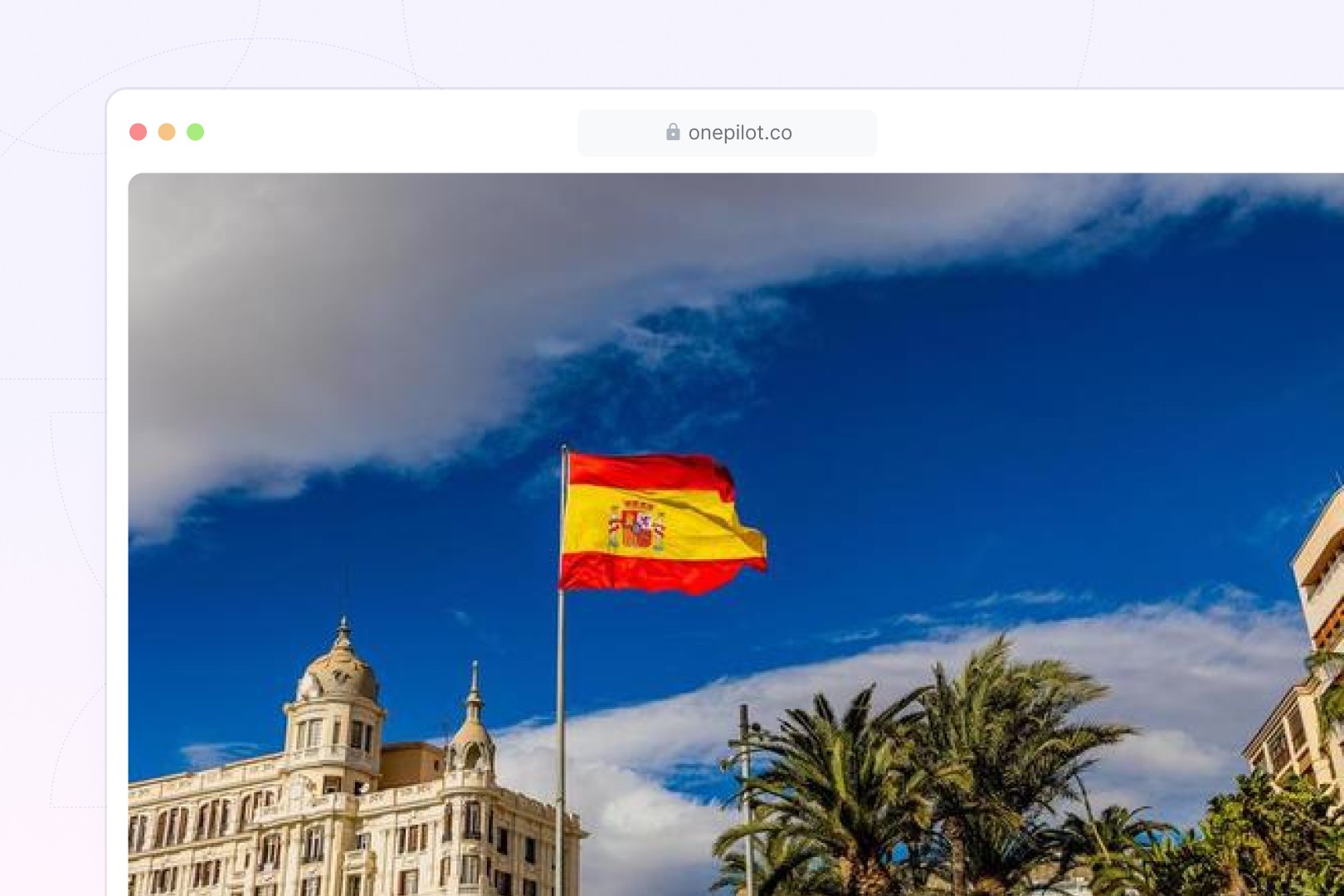Onepilot agents
September 25, 2025
How to Register a Sole Proprietorship in Colombia (Persona Natural Comerciante / Empresa Unipersonal)
Starting a business in Colombia as a sole proprietor can be one of the most accessible ways to become self-employed. Whether you register as a persona natural comerciante (natural person merchant) or an empresa unipersonal, this structure lets you legally operate under your own name or a trade name, without the complex setup required for corporations.
With low barriers to entry, simplified processes, and full operational control, many freelancers, small traders, and entrepreneurs choose this route. However, it also comes with risks: you carry unlimited liability, tax obligations grow with your income, and compliance with Colombian regulations is non-negotiable.
Disclaimer: This article is for informational purposes only. Always verify requirements with official Colombian institutions or consult a legal/tax advisor before registering.
Business Overview: Sole Proprietorship in Colombia
Official Name: Persona Natural Comerciante or Empresa Unipersonal
Registration Authorities:
DIAN (Dirección de Impuestos y Aduanas Nacionales) for tax registration through the Registro Único Tributario (RUT).
Chamber of Commerce (Cámara de Comercio) for commercial registration.
Minimum Capital: No minimum required for a persona natural. Empresa Unipersonal may require an asset declaration when setting up.
Liability: Unlimited for persona natural. Empresa Unipersonal offers a separate legal entity, but liability protection remains limited.
Taxation: Business income is treated as personal income. Obligations may include income tax, VAT (IVA), and municipal industry & commerce tax (ICA).
Naming Rules: You can operate under your legal name or register a trade name with the Chamber of Commerce. Empresa Unipersonal must include “Empresa Unipersonal” or “E.U.” in the name.
Main Advantage: Quick, affordable setup with simplified processes.
Main Disadvantage: Unlimited liability and fewer benefits compared to corporations or S.A.S. structures.
Persona Natural vs Simplified Stock Company (S.A.S.)
Feature | Persona Natural / Empresa Unipersonal | S.A.S. (Simplified Stock Company) |
|---|---|---|
Liability | Unlimited, owner’s assets at risk | Limited to invested capital |
Setup Cost | Low: RUT registration + Chamber of Commerce fees | Higher: incorporation, notaries, legal compliance |
Taxes | Personal income tax; may include IVA & ICA | Corporate tax + dividends tax |
Setup Time | Fast: usually a few days | Longer: weeks, requires statutes and approvals |
Best For | Freelancers, small traders, entrepreneurs testing the market | Startups, growing businesses, ventures needing investors |
Step-by-Step Guide: Registering a Sole Proprietorship in Colombia
Step 1: Verify eligibility
You must be of legal age and have the capacity to conduct business. Foreign nationals can register with valid ID, visa/residency status, and may need additional permits depending on activity.
Step 2: Obtain your tax ID with DIAN (RUT)
Before operating, register for the RUT (Registro Único Tributario) with DIAN. This assigns your NIT (Número de Identificación Tributaria), needed for issuing invoices, declaring income, and paying taxes.
Step 3: Register with the Chamber of Commerce
If your activity is commercial, register as a persona natural comerciante with your local Chamber of Commerce. This includes getting your Matrícula Mercantil (commercial license). If you have a physical location, register an “establecimiento de comercio” as well.
Step 4: Choose and secure a business name
You can operate under your personal name, or register a nombre comercial (trade name) with the Chamber of Commerce. For Empresa Unipersonal, your business name must include “E.U.” or “Empresa Unipersonal.”
Step 5: Prepare your documents
Typical requirements include:
ID card (cédula) or valid passport/foreigner ID
Proof of address
Completed RUT form
Forms for Chamber of Commerce registration
Business activity details (with CIIU code)
Any sector-specific permits (municipal, health, environmental)
Step 6: Pay fees and secure licenses
You’ll pay registration fees at the Chamber of Commerce and renew your matrícula annually. Depending on your activity, local licenses (municipal permits, health permits, etc.) may apply.
Step 7: Stay compliant
Keep proper accounting or income/expense records
File annual income tax returns if thresholds are met
Collect and declare IVA if applicable
Pay ICA (municipal tax) if required by your city
Contribute to social security if you employ others
Update your RUT and matrícula when information changes
Tax and Financial Obligations for Sole Proprietors in Colombia
Income Tax (Renta Persona Natural): You must declare if you exceed DIAN thresholds (e.g., income above 1,400 UVT or patrimony over 4,500 UVT in 2024).
VAT (IVA): Applies if you sell goods or services subject to VAT. You must charge, collect, and declare IVA accordingly.
Industry & Commerce Tax (ICA): A municipal tax on commercial and industrial activity, with rates varying by city.
Recordkeeping: Keep invoices, receipts, and supporting documents for expenses in case of DIAN audits.
Annual Filings: Tax returns and possibly provisional payments depending on your income level.
Final Thoughts
Registering as a sole proprietor in Colombia is one of the simplest ways to formalize your business. It’s low-cost, relatively quick, and gives you full control. However, it also exposes your personal assets to risk and may result in higher taxes as your business grows.
For freelancers, independent professionals, and small business owners, it can be the right starting point. But if you plan to scale, raise investment, or protect liability, consider alternatives like a Simplified Stock Company (S.A.S.).
Looking for opportunities as a sole trader? Check out our remote opportunities in sales or customer care agents.
Stay informed with the latest guides and news.




